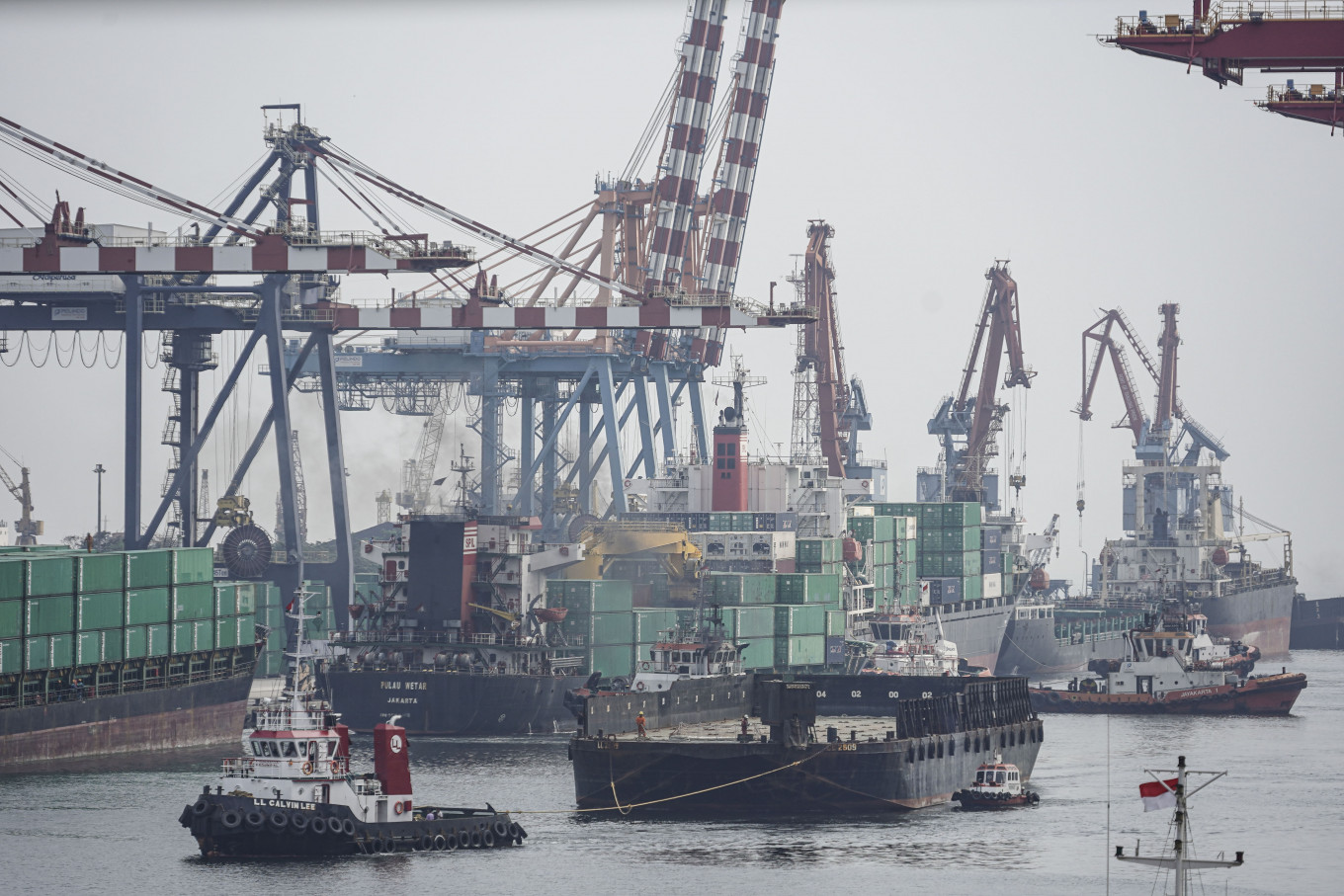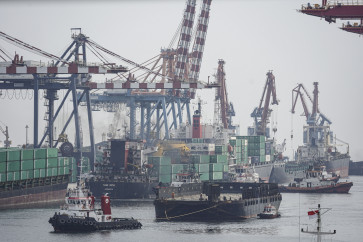Popular Reads
Top Results
Can't find what you're looking for?
View all search resultsPopular Reads
Top Results
Can't find what you're looking for?
View all search resultsSuperholding for maritime SOEs: Risks and opportunities
Financial, operational, regulatory and reputational challenges will inevitably emerge as major risks in the merger.
Change text size
Gift Premium Articles
to Anyone
S
tate Owned Enterprises (SOEs) Minister Erick Thohir said at a recent meeting with Commission VI of the House of Representatives (in charge of supervising SOEs) that he had an ambition to merge Pelindo seaport management, Pelni shipping company and ASDP ferry service operator. The motivation behind this proposal is to strengthen Indonesian logistics and connectivity. But what are the risks and opportunities behind this merger scenario?
Undoubtedly, as an archipelagic nation, Indonesia has significant challenges to address in achieving 8 percent economic growth, as mandated by President Prabowo Subianto. Strengthening Indonesia’s economy through maritime-based economic initiatives will significantly boost domestic growth. I believe it is a good idea to merge these SOEs into a maritime super-holding, but how will the government manage the inevitable risks that may arise? Financial, operational, regulatory and reputational challenges will inevitably emerge as major risks in the merger.
Basically, the entities involved in the merger are quite different: Pelindo is a port operator, Pelni serves as a national shipping line and ASDP provides ferry services. This diversity could affect the company’s portfolio and short-term profitability, which will likely decline due to the financial gaps between these companies.
For example, in 2023, Pelindo recorded a profit of Rp 4 trillion (US$250 million) and ASDP Rp 637 billion, while Pelni reported only Rp 202 billion. Briefly, Pelindo and ASDP operate as commercially-driven SOEs, while Pelni operates primarily through Public Service Obligation (PSO) funding for its social mission from the government. Therefore, Pelni's current condition requires a massive capital injection of around Rp 12 trillion to rejuvenate half of its aging fleet (12 vessels that have been in operation for over 30 years). Commonly the rejuvenated funding comes from state capital injection.
This could impact the new maritime holding’s purpose, as it may struggle to operate entirely commercially. On the operational side, integration could present considerable difficulties. Pelni operates in several non-commercial ports not served by Pelindo, such as Luwuk, Nabire, Namlea and others. These regions have underdeveloped port infrastructure, which Pelindo must address by establishing commercial branches. However, this will place a financial strain on the holding company, as these areas are unlikely to generate substantial profits.
Additionally, system integration is usually an expensive and time-consuming process. Moreover, reputation issues must be considered, as the political friction surrounding the efforts of Pelindo, Pelni and ASDP to gain control and influence over each other's roles in relation to stakeholders is undeniable.
Additionally, disruptions during the merger process could undermine public trust and stakeholder confidence. Unfavorable outcomes may arise from the private sector due to the unclear policies of the new holding company, potentially leading to monopolistic market conditions and resistance from private sector players.


















